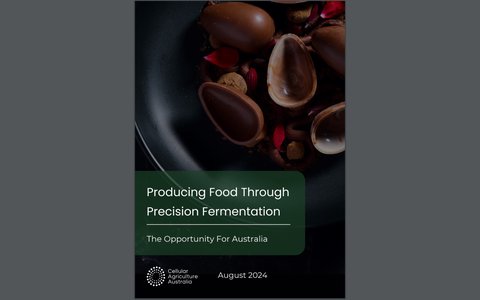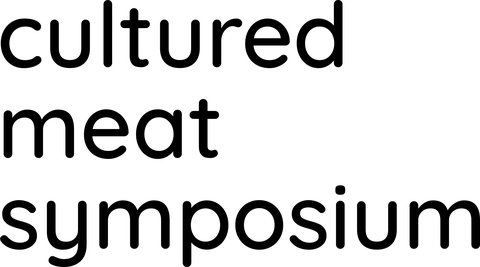Australia Poised to Lead Global Precision Fermentation Industry: New Report
September 2, 2024 - 4 min read

- Cellular Agriculture Australia (CAA) is a registered Australian not-for-profit dedicated to advancing the cellular agriculture sector in Australia. Their work is focused on critical and common challenges and opportunities facing the cellular agriculture sector in Australia. They work with a diverse range of stakeholders including companies, universities, investors, other NFPs, regulators, and government agencies who are engaged or looking to engage with the cellular agriculture sector.
- Cellular Agriculture Australia’s new white paper “Producing Food Through Precision Fermentation: The Opportunity For Australia” highlights Australia’s value proposition in the production of precision-fermented ingredients, and positions the country as an attractive destination for precision fermentation companies to establish and scale operations.
- In addition, the white paper considers the key challenges and corresponding policy changes required for the sector to grow and thrive. It calls on the Australian Government to provide significant and sustained funding for the sector, particularly for research and manufacturing infrastructure. Doing so would enable the industry’s commercialisation and its role as a key contributor to a diverse and resilient food system in Australia.
Australia has the potential to become a global leader in the production of precision-fermented ingredients, according to a new white paper released by leading not-for-profit Cellular Agriculture Australia (CAA).
This industry-first report provides an in-depth analysis of Australia’s emerging precision fermentation sector. Precision fermentation harnesses the power of microorganisms to produce specific functional ingredients that can be used in various food and agricultural products.
Australia is currently home to a small but diverse and innovative cluster of companies, such as: Norco-backed CSIRO spin-out Eden Brew, All G Foods led by serial entrepreneur Jan Pacas, and forward thinking ASX listed company Noumi which has diversified into precision fermentation.
Together, they are translating cutting-edge research into commercially viable products like precision-fermented dairy proteins and fats.
The white paper highlights the significant progress already made, and positions Australia as an attractive destination for the commercialisation and scale of precision-fermented ingredients.
It argues that by embracing precision fermentation to create a wide range of functional ingredients, Australia can position itself at the forefront of food and agriculture innovation. Precision fermentation has the potential to complement existing food production methods to help future-proof Australia’s food system, whilst also unlocking new economic opportunities and building sovereign capability.
Despite significant progress to date, it is stressed that industry’s potential will only be realised when the Australian government provides the necessary support required to ensure companies have access to the infrastructure, research and fit-for-purpose regulatory systems required to scale and commercialise.
To achieve this, the white paper includes a series of recommendations outlining opportunities for Australian Federal and State governments, such as:
- The Department of Health & Aged Care increasing resourcing to FSANZ, thereby enabling increased capability and capacity for FSANZ to deal with applications for foods produced using gene technology and support the industry to be internationally competitive.
- The Department of Industry, Science and Resources adopting cellular agriculture technologies (including precision fermentation) in the government’s innovation agenda, in particular, with reference within the Australian Government’s proposed national strategy for biotechnology/bioeconomy.
- The Department of Education recognising food as a priority application of synthetic biology through precision fermentation in the updated National Collaborative Research Infrastructure Strategy (NCRIS).
CAA’s Chief Executive Officer, Dr. Sam Perkins, states that “Australia has an opportunity to build on existing sovereign capability across the precision fermentation value chain, including robust research capability, a collaborative ecosystem of companies, a well-established regulatory system, and an emerging commercial landscape. We have all the puzzle pieces here, but Government support is crucial to advancing the sector and ensuring Australian companies remain onshore. The window of opportunity for this is finite.”
Encouragingly, the Department of Industry, Science & Resources has awarded AUD $4.3 million in grant funding through its Industry Growth Program (IPG) to Australian-based precision fermentation contract manufacturer Cauldron Ferm. While CAA recognises this as a positive step, they argue that more significant and sustained funding and support is needed. In doing so, precision fermentation could significantly contribute to the Australian Federal Government’s goal to transition towards net zero and create a diversified and resilient food system and economy.
Download your copy of the white paper here:
https://www.cellularagricultureaustralia.org/resources/publications




















